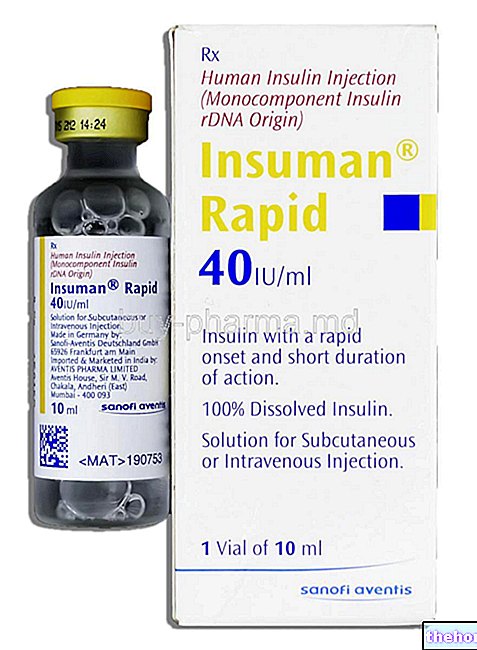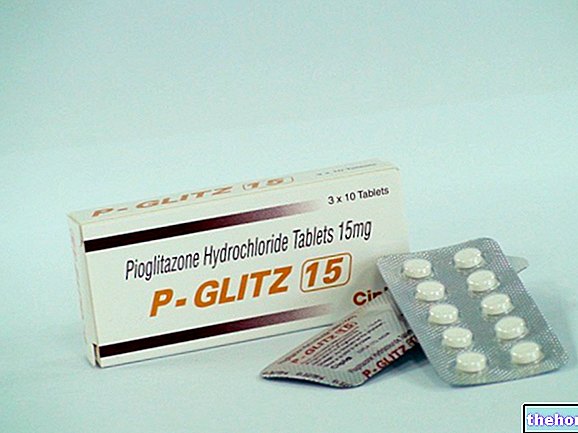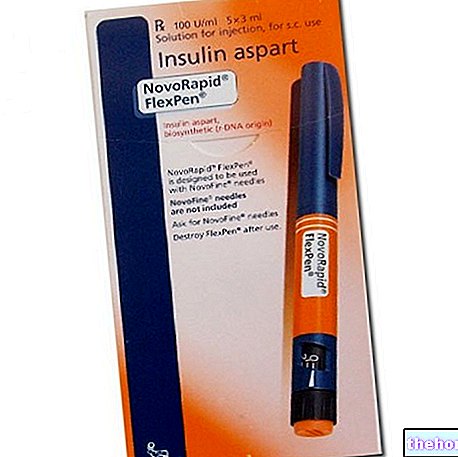
What is Bydureon - exenatide?
Bydureon is a medicine that contains the active substance exenatide. It is available as a powder and solvent for prolonged-release suspension for injection (2 mg of exenatide). The term "sustained release" means that the active substance is released slowly over a few weeks after injection.
What is Bydureon used for?
Bydureon is indicated for the treatment of type 2 diabetes. It is used in combination with other antidiabetic medicines in adult patients whose blood glucose (sugar) levels are not adequately controlled with the maximum tolerated dose of the other medicines. It can be used in combination with metformin, a sulphonylurea, a thiazolidinedione, metformin and a sulphonylurea, or metformin and a thiazolidinedione.
The medicine can only be obtained with a prescription.
How is Bydureon used - exenatide?
Bydureon is given by subcutaneous injection once a week, on the same day each week. The injection can be given in the abdomen, thigh or upper back of the arm. Patients can self-administer the medicine using the kit provided with Bydureon. To this end, they must be adequately trained and must follow the instructions for the user. When Bydureon is added to a sulphonylurea, the doctor may decide to decrease the dosage of the sulphonylurea to reduce the risk of hypoglycaemia (low blood sugar levels). This risk is not anticipated when Bydureon is added to metformin or a thiazolidinedione.
How does Bydureon - exenatide work?
Type 2 diabetes mellitus is a disease in which the pancreas does not produce enough insulin to control the level of glucose in the blood or where the body is unable to use insulin effectively. The active substance in Bydureon, exenatide, is an 'incretin mimetic'. This means that it works in the same way as incretins (hormones produced in the intestine) by inducing an increase in the level of insulin released by the pancreas in response to food intake and thus helping to control blood glucose levels.
How has Bydureon - exenatide been studied?
The effects of Bydureon were first tested in experimental models before being studied in humans.
Bydureon has been studied in four main studies lasting at least six months in a total of 1,525 patients with type 2 diabetes mellitus. Two of the studies (555 patients) compared Bydureon with a medicine containing exenatide administered twice daily. as an adjunct to oral antidiabetic drugs or with treatment limited to diet and exercise. One study (514 patients) compared Bydureon with sitagliptin or pioglitazone (a thiazolidinedione) as add-on therapy to metformin. The other study (456 patients) compared Bydureon with insulin glargine as add-on therapy to metformin with or without a sulphonylurea.
In all studies, the main measure of effectiveness was the change in the concentration in the blood of a substance called glycosylated hemoglobin (HbA1c), which gives an "indication of the effectiveness of blood glucose control. At the start of the studies, the HbA1c levels of the patients were around 8.4%.
What benefit has Bydureon - exenatide shown during the studies?
In all four studies, Bydureon was more effective than comparator treatments at lowering HbA1c levels in the blood. In the first study, Bydureon reduced HbA1c levels by an average of 1.9% after 30 weeks of treatment compared with an average reduction of 1.5% with exenatide administered twice daily. In the second study, the mean reduction was 1.6% after 24 weeks of treatment with Bydureon compared with a mean reduction of 0.9% with exenatide given twice daily. In the third study, Bydureon reduced HbA1c levels by an average of 1.4% after 26 weeks of treatment compared with an average reduction of 0.8% or 1.1% with sitagliptin or pioglitazone, respectively. In the fourth study, the mean reduction recorded with Bydureon was 1.5% after 26 weeks compared with an average decrease of 1.3% with insulin glargine.
What are the risks associated with Bydureon - exenatide?
The most common side effects with Bydureon were mostly stomach and bowel problems (nausea, vomiting, diarrhea and constipation). Nausea was the most common isolated side effect, mostly seen at the start of treatment, with a tendency to decrease over time. Other side effects were injection site reactions (itching), low blood sugar (when the medicine was used in combination with a sulphonylurea) and headache. Most of the side effects were mild to moderate in intensity. For the full list of side effects reported with Bydureon, see the package leaflet.
Bydureon must not be used in people who may be hypersensitive (allergic) to exenatide or any of the other substances.
Why has Bydureon - exenatide been approved?
The CHMP noted that the benefits of Bydureon, including its effect on lowering HbA1c levels, support the comparison to the benefits of the reference medicines and that the undesirable effects are manageable. The CHMP therefore decided that Bydureon's benefits are greater than its risks and recommended that it be given a Marketing Authorization for this medicine.
Other information about Bydureon - exenatide
On 17 June 2011, the European Commission issued Eli Lilly Nederland B.V. a "Marketing Authorization" for Bydureon, valid throughout the European Union. The "Marketing Authorization" is valid for five years, after which it can be renewed.
For more information about Bydureon therapy, read the package leaflet (included with the EPAR) or contact your doctor or pharmacist.
Last update of this summary: 05-2011
The information on Bydureon - exenatide published on this page may be out of date or incomplete. For a correct use of this information, see the Disclaimer and useful information page.









.jpg)


















